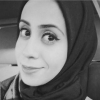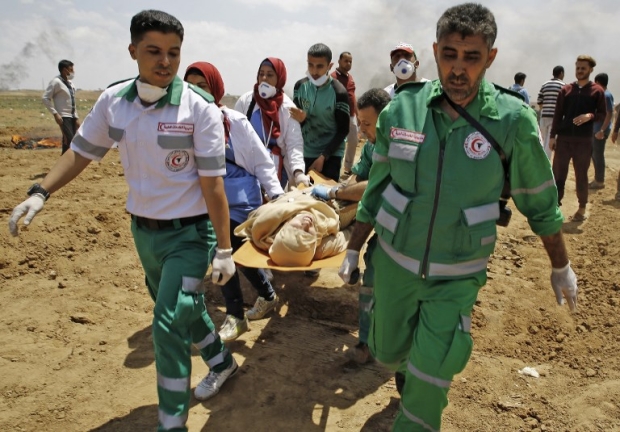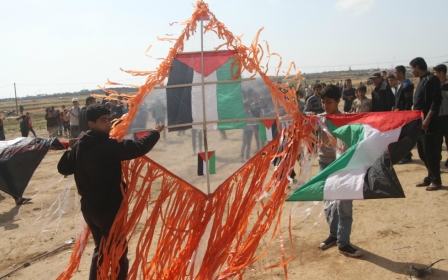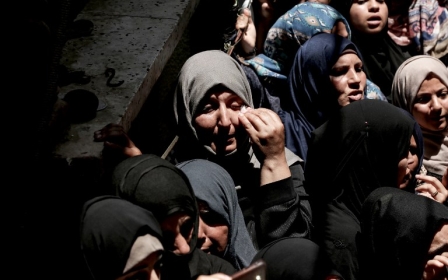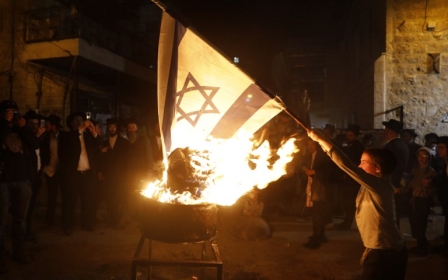As a teenager in Gaza, I want peace and a normal life, like you
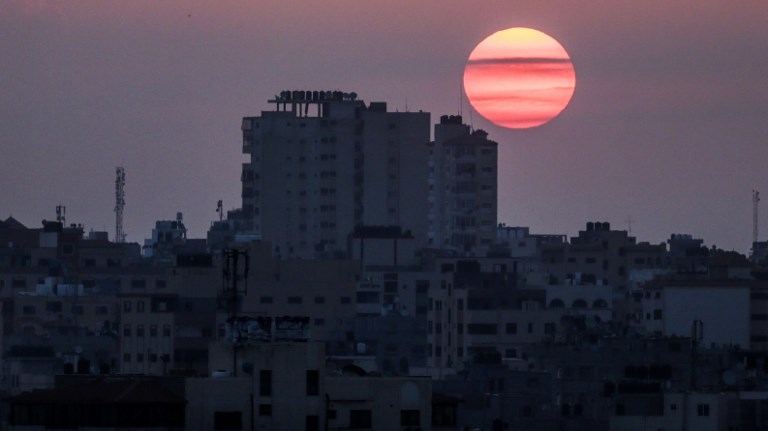
Have you ever seen the beautiful side of Gaza?
For many people, what first comes to mind when the enclave is mentioned is an image of buildings in ruins, like collapsed wedding cakes, having been levelled by Israeli missiles. It is difficult to imagine Gaza as a thriving Mediterranean resort, with a beach where children play, run and build sandcastles.
I don’t blame you if you can’t imagine that, especially if you read or watched the news on 14 May - shot after shot, body after body, again and again. In just a few hours, more than 60 Palestinians were killed and thousands were injured.
Media distortion
If you think more deeply, though, you’ll realise we’re humans like everyone else. The media is getting it wrong about Gaza. When news reports say that “people died”, this is misleading; people didn’t choose to be killed. When the media refers to “clashes”, this is also inaccurate; there are no clashes between peaceful demonstrators and Israeli snipers, tanks and live ammunition.
The majority of the news reports about the recent events in Gaza have been misinforming the public about the real reason for the Great Return March. Hamas is not the engine propelling the masses. It’s the people’s choice, the public’s will. Hamas might have had a role in further inflaming the situation and calling for more confrontation in retaliation for the lives lost, but that’s it.
We have been protesting, and demanding our right to freedom, our right to return home, for 70 years
Masses of unarmed people protesting in front of the strongest army in the world - demanding their basic rights to travel, live, work, move freely and return to their original homeland - is not reckless behaviour. It demonstrates that Palestinians in Gaza hold their homeland close to their hearts.
I’ve heard people say that standing up for Palestinians is not a politically expedient cause, but what vital cause is?
Deadly violence
What Palestinians got in exchange for throwing stones and burning tyres was tear gas and live ammunition. Men, women and children were shot in the leg, using bullets that doctors have described as “very destructive”, causing serious bone and tissue injuries. Many of those who were not killed will need physical therapy and long rehabilitation. In some cases, they will have limbs amputated, as hospital care is lacking thanks to Israel’s blockade of Gaza for more than a decade.
Since the 2014 war, 14 May was one of the deadliest days of violence against Palestinians.
The peaceful protests were not just about the moving of the US embassy to Jerusalem. We have been protesting, and demanding our right to freedom, our right to return home, for 70 years. On this occasion, it just happened to coincide with the moving of the embassy.
Blaming Hamas is a part of a dehumanisation project carried out by the media. There were protests in the West Bank, for example, which Hamas does not control. The Palestinian National Council accepted the existence of Israel in 1988; the party that does not want peace is Israel, because it wants the entirety of the land.
Where is the international community?
Despite all this, the media continues to blame Palestinians. I keep wondering what more we need to do. What will it take for the international community to stand up for Palestine?
Gaza is home to two million people crammed into a tiny stretch of land, with a shortage of power, water and jobs. As a Palestinian teenager, I want to make peace. I want to live a normal life, like millions of people around the world.
Israel must end the siege. Without a culture of peaceful coexistence between Palestinians and Israelis, peace is not possible. Palestinians are entitled to live in freedom and dignity in a state of our own; we cannot keep fighting for the rest of our lives.
Right now, Israel controls its future and ours. If Israel wants to make peace, it must take steps towards reconciliation. It will not be easy, but it is vitally important. We cannot let our past control our future.
- Tarneem Hammad was born in Saudi Arabia but now lives in Gaza. She works as an English language instructor at Amideast and writes for We Are Not Numbers.
The views expressed in this article belong to the author and do not necessarily reflect the editorial policy of Middle East Eye.
Photo: The sun rises over Gaza City on 3 June 2018 (AFP).
This article is available in French on Middle East Eye French edition.
Middle East Eye propose une couverture et une analyse indépendantes et incomparables du Moyen-Orient, de l’Afrique du Nord et d’autres régions du monde. Pour en savoir plus sur la reprise de ce contenu et les frais qui s’appliquent, veuillez remplir ce formulaire [en anglais]. Pour en savoir plus sur MEE, cliquez ici [en anglais].


